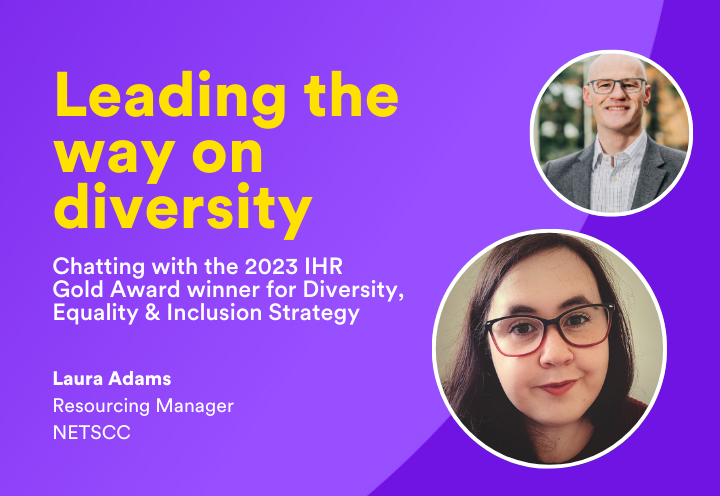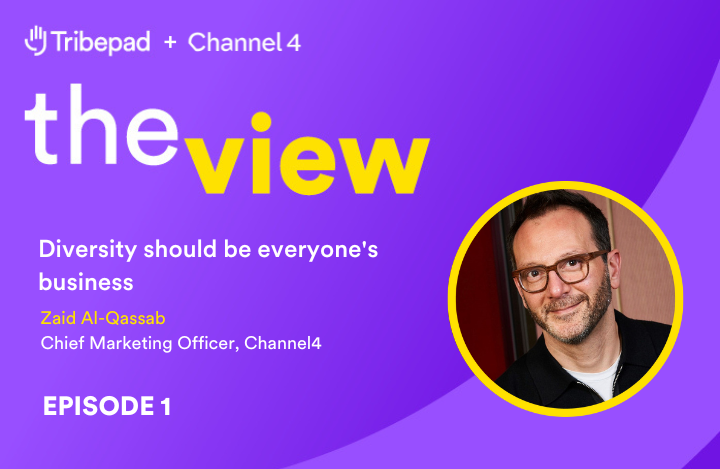Shaping the future of recruitment in the Civil Service…
Tribepad continued it’s commitment to EDI last year, sponsoring the award for Diversity, Equality & Inclusion Strategy at the In-house Recruitment Awards 2023. We were lucky enough to speak to several of the nominated teams in a fiercely contested category!
In the second instalment of our EDI spotlight mini-series, our CCO, Neil Armstrong, chats with Philip about his role as Chief Psychologist & Chief Assessor for the Civil Service Fast Stream, and how they’re shaping the future of recruitment in the sector. Here’s how it went…. (or you can watch the whole interview in the video above)
Tell us about recruitment at the Cabinet Office, and specifically what led you to enter the IHR Award for Diversity, Equality & Inclusion Strategy?
“The main focus of our work is in respect to emerging talent and early talent, in terms of bringing in individuals who are graduate program, apprenticeships internships. We have a near miss scheme and various other approaches.
So the actual submission was all about diversity and inclusion and the work we’ve done there. The graduate program is a quite high profile scheme. It’s number two in the Times Top 100, and we have a goal of really trying to be the most inclusive program in the UK, essentially, and our drivers around ED&I relate to hopefully giving opportunities to everyone from any background, being inclusive and open to everyone, and trying to use diversity as a lever for enhancing organisational performance.
We focus on things like cognitive diversity, regional diversity, skills diversity, team diversity, hopefully creating an inclusive culture and, of course, focusing on protective characteristics such as gender, ethnicity, sexuality and socioeconomic background. So we’ve done lots of work over the years in that area.
The submission was really trying to reflect the work we’ve done, trying to promote that activity, maybe get some sort of recognition through the awards.”
You take on hundreds of people into this graduate scheme each year. How diverse is the range of roles and where they get placed?
“We have 15 different schemes essentially, which relate to say human resources, finance, relate to the economist scheme, we have a policy scheme, diplomatic service, lots and lots of schemes really. So we are across civil service. We bring people in, and they are then assigned to those different schemes based on different eligibility requirements, and based on the scores that they achieve.
Then there’s a very comprehensive development program that they have. They work through different schemes which vary in terms of qualifications that arise and so on. But we are focused on making sure we get the best talent, but the most diverse talent as well.”
And as a Psychologist and Chief Assessor, you must have a really interesting role and working relationship with the recruitment side. How exactly does that work?
“They’re generally very, very supportive of any initiative improvements or approaches. Everybody wants to achieve the very best outcomes, achieve the best diversity, and achieve the best people into the programs. So the collaboration is very strong in term helping with the design, the assessor training, the delivery of the approach through different platforms, through assessment centres, virtual or otherwise, and trying to get the very best outcome, and also the best candidate experience.
Of course, we want to make sure that those who come through do feel positively about the program. We were just looking at some data for our assessment centre that we’re currently going through, and we’re getting data of about 90 percent approval for the different exercises. So it’s encouraging that we’re getting that sort of data and above all maybe, in terms of what we submitted in these [IHR] awards, some really good diversity outcomes as well in terms of representation.”
What are your thoughts on the public sector and the external perceptions when it comes to recruitment, and do you think there are lessons to be learned in the private sector, and vice versa?
“The private sector in some areas are doing very well, and I really admire some of the work that’s been done in terms of social mobility and other areas. We’ve had the opportunity to develop things in terms of data monitoring, which has been very significant analysis. We have some amazing analysts in the civil service, not just for recruitment, but for all sorts of other things. And, we’re really able to harness that capacity. So I think that’s one area where we do excel.
I think we excel in terms of a commitment to diversity and inclusion, wanting to bring in a diverse group, because we see it as so important in terms of delivering for the public. We don’t want to be too homogeneous. We want to make sure that we represent the British public in terms of the people who are employed and that they have the best ideas to create the best initiatives and policies for all sorts of areas such as employment or education, and everything else that the civil service does.”
Looking forward you must be super optimistic about what you can achieve, are there any particular green shoots you’re seeing?
“Yes absolutely. I think we’re definitely focused on things like AI, artificial intelligence, of course, as everybody else is, trying to make sure that we accommodate the opportunities there, the incredible opportunities in terms of data processing, in terms of speed of recruitment, analysis. And giving a very positive candidate experience, hopefully, but also, just revising our approaches, trying to always update, trying to streamline, trying to reduce the amount of activity for a candidate. In terms of the different stages, trying to make it as speedy as possible, trying to get the best metrics in terms of how they perceive us. So it’s those sorts of things that are significant.
We’ve had some really amazing internships over the years. We’ve got an autism internship, multi award winning summer internships, and they’ve been focused on diversity and we’re continuing that, but we’re also broadening our approach, for example, moving from the autism program, maybe towards a more neurodiversity program.
We’re developing our mentoring program for those who come onto the scheme, and we’re developing a whole approach around learning and development.”
Find out more about Tribepad’s commitments to DE&I Strategy, as well as how our software makes your recruitment fairer, faster and better for everyone.




